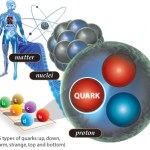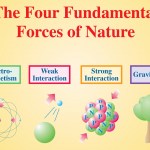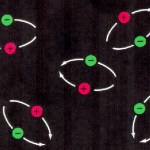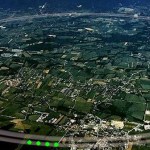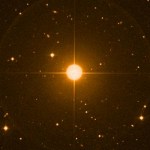proton
"The atoms come into my brain, dance a dance, and then go out - there are always new atoms, but always doing the same dance, remembering what the dance was yesterday." -Richard Feynman
Here you are, a human being, a grand Universe of atoms that have organized themselves into simple monomers, assembled together into giant macromolecules, which in turn comprise the organelles that make up your cells. And here you are, a collection of around 75 trillion specialized cells, organized in such a way as to make up you.
Image credit: J. Roche at Ohio University.
But at your core, you are still just…
"I found I could say things with color and shapes that I couldn't say any other way -- things I had no words for." -Georgia O'Keeffe
When it comes to the Universe, it isn't just the stuff that's in it that's important.
Image credit: 2MASS Extended Source Catalog (XSC).
It's also how all that stuff interacts with itself and everything else. To the best of our knowledge, there are four fundamental forces in the Universe, and they're all essential to our existence.
Image credit: Stichting Maharishi University of Management, the Netherlands.
Some of them are familiar, like gravitation. On the…
The big physics story at the moment is probably the new measurement of the size of the proton, which is reported in this Nature paper (which does not seem to be on the arxiv, alas). This is kind of a hybrid of nuclear and atomic physics, as it's a spectroscopic measurement of a quasi-atom involving an exotic particle produced in an accelerator. In a technical sense, it's a really impressive piece of work, and as a bonus, the result is surprising.
This is worth a little explanation, in the usual Q&A format.
So, what did they do to measure the size of a proton? Can you get rulers that small…
I love this story. It is a story of how ideas changed about the nature of the atom. These are the notes (and diagrams) I use when I teach the atomic nature of matter to non-science majors. The best thing about this story is that it is a great example of science. Science (or scientists) build a model. If new evidence comes along, the model gets changed. There are several other websites that describe all of this stuff, I will list a couple at the end of this post.
Typical textbook model of an atom
Look in an intro, non-science majors textbook and you will probably see a picture like this…
There is a very techincal paper this morning by Martin Bojowald that asks the question, How Quantum Is The Big Bang? Let me break it down for you.
If you took a look at empty space and zoomed in on it, looking at spaces so small that they made a proton look like a basketball, you'd find that space wasn't so empty after all, but was filled with stuff like this:
What are these? They're little pairs of matter particles and anti-matter particles. They spontaneously get created, live for a brief fraction of a second, and then run into each other and disappear. That's what happens on very small…
Hector writes in and asks about someone from Sheffield in the UK who says that the Large Hadron Collider (LHC) will create Dark Matter:
The massive ATLAS detector will measure the debris from collisions occurring in the Large Hadron Collider (LHC) which recreates the conditions found in the early universe during the Big Bang when Dark Matter was first created. If the LHC does indeed create such particles then it will be the first time that the amount of Dark Matter in the universe has increased since the Big Bang - the LHC will effectively be a Dark Matter 'factory'.
Well, Hector basically…
Ahh, stars. Giant furnaces of nuclear fusion. Doing the stuff our Sun does, burning hydrogen fuel into helium (among other things) and emitting lots of visible light and energy in the process.
But when we take a look at brown dwarfs, they aren't like normal (i.e., main sequence) stars like our Sun. Instead of burning hydrogen into helium for their fuel, brown dwarfs don't generate enough pressure to make that happen; they can only burn hydrogen into deuterium.
Let's go over what the differences here are. A hydrogen nucleus is just a proton, with a mass of 938.272 MeV/c2. (I use these units…
